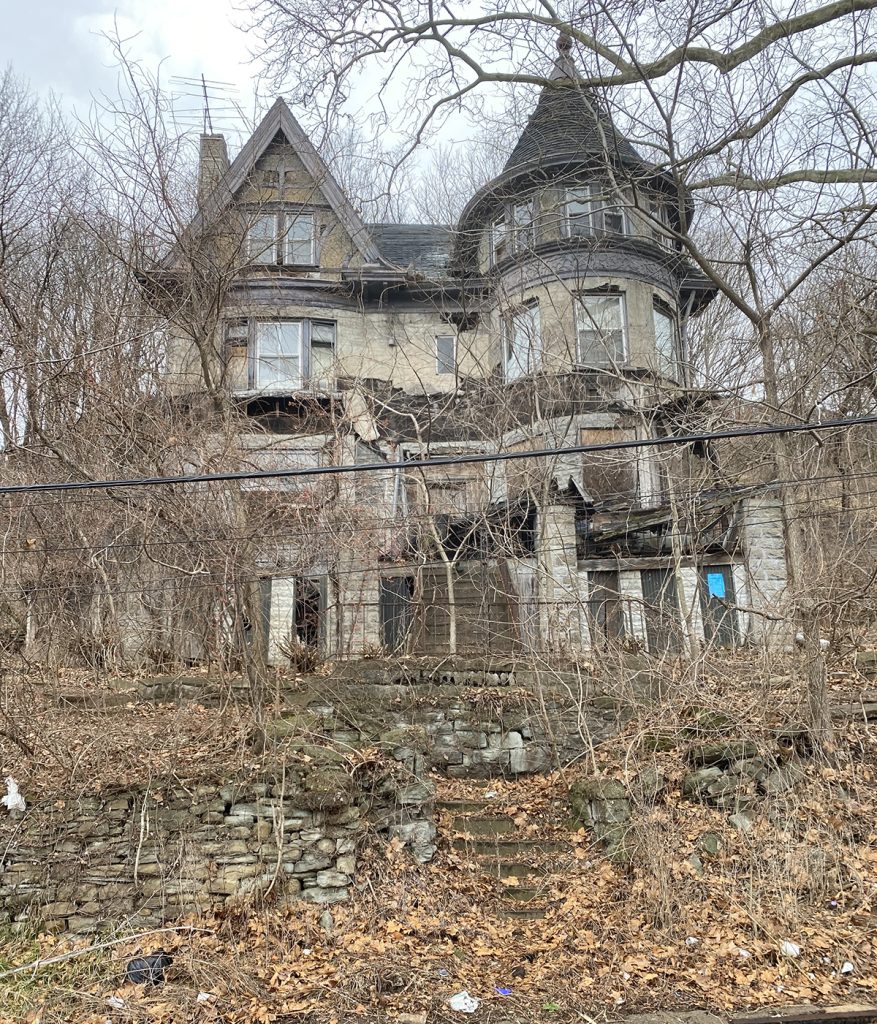
PHLF Supports National Opera House in Restoration of Historic Homewood House

This Queen Anne-style house in Homewood once housed the National Negro Opera Company considered to have been the first African American opera ensemble in the United States.
The Pittsburgh History & Landmarks Foundation is pleased to support Jonnet Solomon, executive director of the National Opera House, to restore the Queen Anne-style house in the Homewood neighborhood of Pittsburgh, which once housed the National Negro Opera Company, considered to have been the first African American opera ensemble in the United States.
“We have a great partnership with PHLF, which has been essential in understanding the scale of the restoration effort we are undertaking,” Ms. Solomon said. “I have been working on this house for more than 20 years and I am pleased to have the support of PHLF, not only on advocacy but in understanding the feasibility of restoration and how to execute a fundraising plan.”
In 2008, our organization supported the house’s designation as a City Historic Landmark. In addition to offering public support for the National Opera House, we have been working to conceptualize new ideas that would move forward the restoration of the house at 7101 Apple Street.
“PHLF has taken the lead and is underwriting the cost of the civil engineering work for the site, which entails the restoration of two historic stone walls that support the structure of the house, and also includes stormwater and erosion mitigation, and landscaping of the steep hillside on which the house is located,” said PHLF President Michael Sriprasert.
“Through this partnership, we have a great opportunity to restore this important house,” said Mr. Sriprasert. “We hope that this historic preservation effort will help create and leverage more funding opportunities for community renewal in this part of our city.”
Built in 1894, the house is a landmark in American history, and not only reflects the complicated history of race in this country, but also the aspirations of African Americans who dreamed of developing and pursuing their love of music, opera, and the performing arts, in this house seated on a hill in Homewood, in Pittsburgh’s East End.
In 1930, the house was purchased by William “Woogie” Harris, Pittsburgh’s first black millionaire and brother to famous photographer Teenie Harris. As the Harris’ family home, the house hosted some of the most famous personalities of African American society, arts, sports, and culture. During a period of discriminatory housing, lodging laws, and practices, the house provided a safe place, community, and accommodations to African American artists and athletes.
The National Negro Opera Company, organized under the direction of Mary Cardwell Dawson, rented the third floor of the house, using it as offices and rehearsal space. The company lasted from 1941 to 1962 and saw productions launched in Homewood and performed in Washington D.C., Chicago, and New York, among other places.
Because of its significance, the house received a historical marker from the Commonwealth of Pennsylvania in 1994 and it is included in African American Historic Sites Survey of Allegheny County, published by the Pennsylvania Historical and Museum Commission in 1994, and in A Legacy in Bricks and Mortar: African-American Landmarks in Allegheny County, published by our organization in 1995.
Our organization is currently designing an oral history and education program about the significance of the house as a part of Pittsburgh and American history named, A Legacy in Stone: Homewood’s National Negro Opera House and the Confluence of Pittsburgh’s African American Culture.
This project, which is funded through a grant from the African American Civil Rights Grant Program through the Historic Preservation Fund administered by the National Park Service, will also include our nomination of the house for listing in the National Register of Historic Places.
